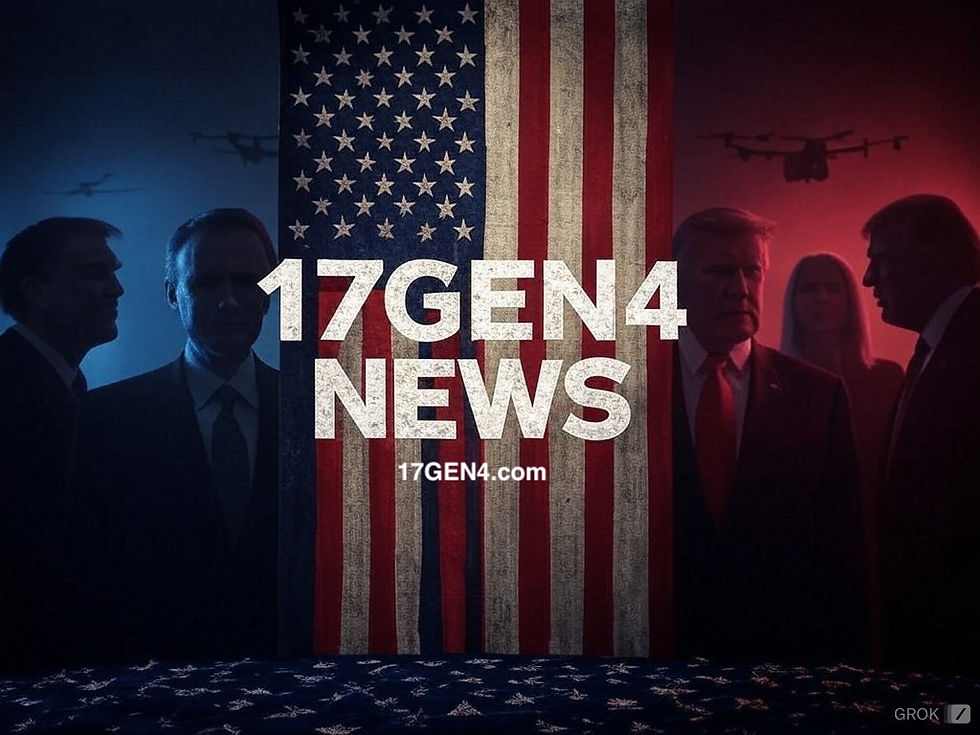Curtis Sliwa Admits to Staging Hoaxes for Publicity
- 17GEN4

- Oct 28
- 3 min read
New York, November 25, 1992 — In a stunning confession that has rocked the world of urban vigilantism, Curtis Sliwa, the charismatic founder of the Guardian Angels, revealed that he fabricated six high-profile incidents in the late 1970s to propel his fledgling crime-fighting group into the national spotlight. The stunts helped transform the red-bereted patrol into a global phenomenon, but they have also ignited fresh scrutiny over the organization's tactics and credibility.
Sliwa, 38, founded the Guardian Angels in 1978 amid New York City's spiraling subway crime wave, sparked by a budget crisis that slashed transit police ranks and left trains unguarded after dark. Starting as a ragtag crew known as the "Magnificent 13" — mostly young Black and Latino volunteers from the Bronx — the group patrolled platforms with fists, karate chops, and an unyielding sense of mission. But as Sliwa candidly admitted, survival demanded more than grit: It required "creative license."
'I was wrong, but we were in a sprint for survival,' Sliwa told the Post, likening himself to 'Don Quixote' tilting at windmills. 'The media attention was an intoxicant, a narcotic.' He emphasized that the hoaxes ceased after 1980, insisting all subsequent Guardian Angels exploits — including a brutal baseball-bat beating he suffered in April 1992 and a near-fatal shooting in June, where he was ambushed and hit five times in a taxi — were genuine.The confessed fabrications paint a picture of desperate ingenuity in the Angels' chaotic early days:
The Staged Wallet Heroics (1978): In the group's inaugural publicity coup, Sliwa and a local priest, Rev. James McNally, orchestrated the "discovery" and return of a lost wallet stuffed with $300 to an elderly mugging victim. "It was dreamed up to get the group started," Sliwa said. McNally, reached in Massachusetts, confirmed his role but shrugged it off: "The concoction didn't hurt anyone. Curtis did a good job and I still believe in the work he's doing."
Phantom Subway Rescues (1978-1980): Sliwa claimed the Angels thwarted multiple muggings on underground platforms, including one where a member returned with self-inflicted bruises from a "heroic tussle" — actually sustained from a mundane slip while escorting his girlfriend home. These tales flooded headlines, drawing recruits and donations.
The Fake Beating (1978-1980): Sliwa spun a yarn about being pummeled while intervening in a rape attempt, bruises and all. "We needed to show we were out there fighting," he later explained.
Racist Graffiti Stunt (1978-1980): To drum up sympathy and secure their Bronx headquarters from eviction, Sliwa had Angels members scrawl "KKK" and "White Power" on the building's exterior. "The words were painted by 'our own Guardian Angel members,'" he confessed.
The Kidnapping Fabrication (October 1980): The most audacious hoax saw Sliwa allege that three off-duty transit cops abducted him in a squad car, drove him around the city, and issued death threats to scare the Angels off the subways. "That never happened," Sliwa admitted flatly. He staged it after enduring real nightly harassment from officers, hoping to expose systemic threats. The ploy backfired spectacularly: Bronx District Attorney Mario Merola hauled him in for questioning and delivered a blistering ultimatum — cease the theatrics or face perjury charges. It was the final straw.
These deceptions, Sliwa said, were born of necessity. The Angels ballooned from a handful of volunteers to nearly 5,000 members across 47 cities worldwide, their signature red jackets becoming symbols of grassroots defiance. Yet critics, including the Transit Police Benevolent Association, were less forgiving. Union president Ron Reale had announced plans for a civil lawsuit accusing Sliwa of slandering officers and damaging reputations. He should have talked to his lawyer before he made the admissions, Reale fumed. This is the final chapter to his book — and he's not going to make any money on this.
Former Angels echoed mixed sentiments. Co-founder Tony Mao recalled drenching himself in gasoline for a faked token-booth rescue, claiming Sliwa was the mastermind behind such elaborate subway dramas. An early coordinator defended the stunts as paternal devotion: It's like my child, and I'll do anything for it. But others, like ex-member William Diaz, decried the culture of exaggeration, citing internal fallout from unchecked lies.



Comments